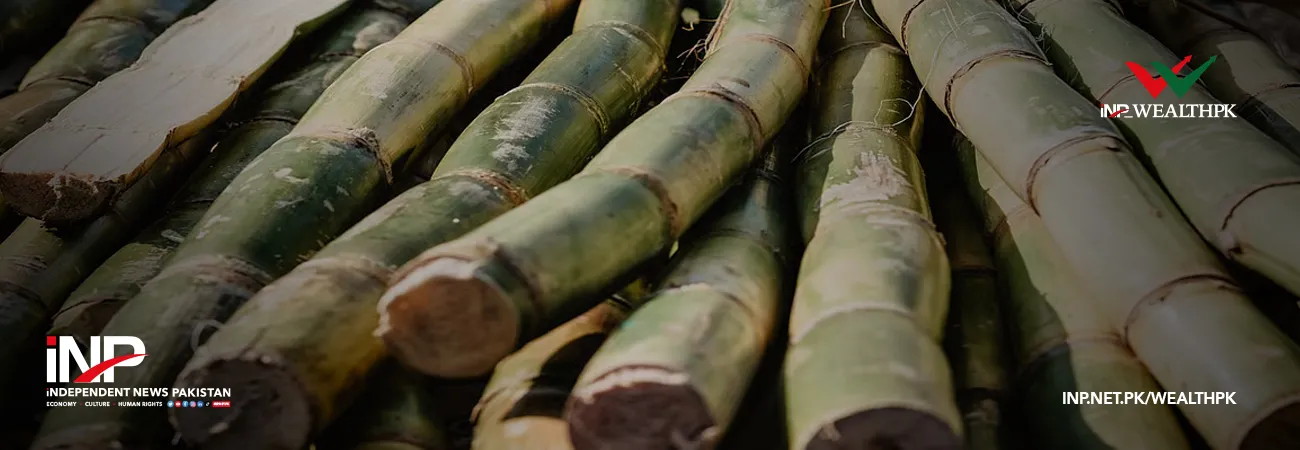INP-WealthPk
Muhammad Zamir Assadi
Xinjiang, northwestern part of China has emerged as a region attaching a great significant to economic growth that has helped in providing sense of contentment and happiness to the people of the land in the last many years.
By following the developmental path announced in previous five year plans, the region has emerged as a sustainable economic hub in western part of China that is connecting its borders with different countries.
The economic stability of the province has provided more opportunities of growth and development to the local residents in various fields.
The policies adopted and implemented by Communist Party of China has helped the people to increase their sense of fulfillment, happiness and security.
In a historic feat, the region has eliminated absolute poverty, with some 3.06 million rural residents lifted out of poverty in the past five years.
The credit of success in Xinjiang for poverty alleviations goes to the growth of China's main agricultural bases including the production of central Cotton industry.
It is recorded that the secondary sector, including manufacturing and construction, was the primary contributor to growth. Fixed-asset investment grew 16.2 percent over the previous year.
On the upside, the region registered robust growth from new economic drivers, with a 27.6-percent year-on-year growth in online retail sales and a 25-percent year-on-year increase in high-tech manufacturing added value.
The per capita disposable income of rural residents reached 14,056 yuan (about 2,171 U.S. dollars), up 7.1 percent, as the region's anti-poverty campaign bore fruit. The increase was paced at 8.3 percent annually on average over the past five years, as more surplus rural labor force found stable jobs.
In pursuing high-quality development, Xinjiang aims to keep its average annual economic growth rate at 6 percent or above in the 2021-2025 period, driven by key engines like the labor-intensive sector, the emerging industries and tourism, according to the government work report.
Aiming to develop itself as a core area of the Silk Road Economic Belt, the region will also expand opening-up and strengthen exchanges and cooperation with neighboring countries, the report said.
Xinjiang is well known for its outstanding natural beauty, attracting hundreds of millions of tourists from home and abroad every year. The region received more than 158 million tourists in 2020, and the regional government expects to receive more than 200 million this year and 400 million by 2025.
The outstanding achievements in Xinjiang region shows that Claims that China's Xinjiang Uygur Autonomous Region has conducted "genocide" or built "concentration camps" are baseless slanders.
Claims of genocide in Xinjiang are lies fabricated by former U.S. Secretary of State Mike Pompeo and his like, adding that the people of various ethnic groups in Xinjiang enjoy extensive rights and freedom.
The claims blatantly trampled on international law and basic norms, grossly interfered in China's internal affairs and seriously hurt the feelings of all ethnic groups in Xinjiang.
The Uygur population in China's Xinjiang has doubled from 5.55 million to over 12 million in the past over 40 years.
Facts speak louder than words. From 2010 to 2018, the population of the Uygurs in Xinjiang increased by 25 percent, much higher than that of the Han population, which is 2 percent. Over the past 60 years, average life expectancy in Xinjiang increased from 30 to 72, and gross domestic output in Xinjiang expanded by over 200 times, with per capita GDP growing by nearly 40 times.
Members of the Muslim clergy in Northwest China's Xinjiang Uygur Autonomous Region have refuted the lies and rumors that have been spread by Western media about the demolition of mosques, the restriction of religious activities or the detention of Muslim devotees.
The clerics also shared the view that Western lies and rumors about Xinjiang have the purpose of putting a wedge between the government and the people, between Muslims and non-believers.
They expressed that the vicious motivation has been revealed and they will oppose any forces that want to disturb the happy lives of the local population.
Some Western media have been using satellite images to prove their claims that Xinjiang is tearing down mosques. However, Abuduwaili Abulimiti, the hajib of Aletun Mosque denied what is being told about the situation in Xinjiang and explained that there is a renovation and expansion plan for some mosques to make the buildings safe and suitable for religious activities.
Some mosques were moved to a new location to better serve needs of devotees and comply with the urbanization regulation and city planning, Abuduwaili said.
The Aletun Mosque was built in 1533 and can accommodate up to 300 worshipers. The government has allocated money to renovate and preserve the building.
Following the development in the region, the locals strongly condemn and resolutely oppose such rumors and slanders made by anti-China forces.
Some Western countries and forces have wantonly discredited China and slandered China's policies on Xinjiang-related issues. In fact, they are using Xinjiang-related issues as an excuse to attack China and interfere in China's internal affairs in an attempt to undermine China's development.
The diplomats and thinkers who have visited China in recent years have also rejected "groundless slanders" that Xinjiang built "concentration camps" to incarcerate millions of Uygurs.
The happy lives of the locals mean that Xinjiang has fully protected human rights in its crackdown on terrorism, noting that a series of measures have greatly improved the stability in Xinjiang, where no violent terrorist incidents have occurred for more than four years.
It is to be noted that social stability emerging from economic progress is helping the development of overall economic structure of Xinjiang rapidly.
This stability has spread the colors of unity and harmony in the ethnicities living in the autonomous region who are playing their vital role for economic progress of the region.
Unfortunately, the rapid and continuous development of Xinjiang has at times been overshadowed on many foreign media sites by often ill-informed reports of terrorism and separatist and sectarian strife
The 46th regular session of the United Nations Human Rights Council (UNHRC) recently recorded that what the world has witnessed during the four-week conference was a record of the repeated double standards of the United States and some other Western countries.
It tells that western nations must abort the double standards on so called human rights claims regarding Xinjiang and open their minds.
It is the dire need of the time that some related countries to abandon ideological prejudice and stop double standards on human rights issues.
Everyone must see the achievements in economic and social development, poverty alleviation, ethnic unity and harmony, and human rights, and the outcome of counter-terrorism and de-radicalization efforts.
Some of the social media platforms and media outlets also fall victim to the propaganda of western media and becomes a player in spreading lies about Xinjiang.
The media outlets must analyze the blind propaganda coming from western think tanks and Medias about Xinjiang and should not be helping hand in spreading the lies about China.
The End





